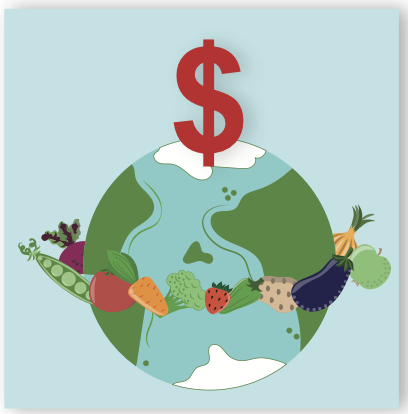Almonds and Chocolate Good for Cholesterol
Eating almonds or almonds and dark chocolate together, but not dark chocolate alone, improves blood cholesterol, says a study in the Journal of the American Heart Association. Thirty-one overweight or obese participants, ages 30 to 70, consumed four test diets for 4 weeks each, in random order. Each of the test diets included take-home meals consistent with an average American diet, with one serving as a control and the other three being enhanced with (a)…
Leafy Greens Protect Aging Brains
Older adults who ate 1 to 2 daily servings of leafy green vegetables showed less age-related decline in memory and other mental skills than those eating less, according to a study in Neurology.
RDs Predict Fermented Foods Will Be Top Trend for 2018
A national survey of registered dietitians predicts that 2018s top consumer interest will be fermented foods, such as yogurt, kefir, kombucha (fermented sweet tea), sauerkraut, tempeh, some pickles, kimchi and miso. Pollock Communications, a public relations firm, and the magazine Todays Dietitian conducted the survey of 2,050 nutrition professionals.
A Big New Look at Coffee and Health
A large umbrella review of 218 studies on coffee and health found that people who drink 3 to 4 cups a day are at lower risk of a range of diseases and conditions, says a study in The BMJ. The umbrella review combined the results of 218 meta-analyses, each of which combined findings from multiple studies. These studies of studies included 17 with randomized clinical trials, which-compared to observational studies-produce stronger evidence that coffee may directly reduce the risk of certain diseases.
Long-Term Couples Sense of Smell and Taste Become More Similar Over Time
The longer couples stay together, the more similar their smell and taste preferences become, researchers report in Appetite. Although a number of studies have found that romantic partners become more similar in various ways over time, this is the first study to see if this compatibility effect extends to smell and taste, which help to shape food preferences.
Sugary Drinks: Declining, But Not Fast Enough?
Consumption of sodas and other sugar-sweetened beverages continues to decline, though adolescents and young adults still obtain too many calories from such drinks, according to a study in Obesity.
Weight-Loss Reverses Diabetes
Remission of type 2 diabetes is possible through intensive weight management alone, according to findings from the Diabetes Remission Clinical Trial (DiRECT) reported in The Lancet.
New Blood Pressure Target Announced
In November 2017, The American Heart Association and the American College of Cardiology released new treatment guidelines that call for lowering the threshold for diagnosing high blood pressure from 140/90 to 130/80.
Do Nuts Prevent Weight Gain?
A small handful of nuts contains up to 200 calories, but people who eat them experience less weight gain over time, suggests a study in the European Journal of Nutrition.
Walk for Your Health (and Life)
Regular walking reduces the risk of death in older adults, even when they do less than the amount recommended by national guidelines, according to a study in the American Journal of Preventive Medicine.



























